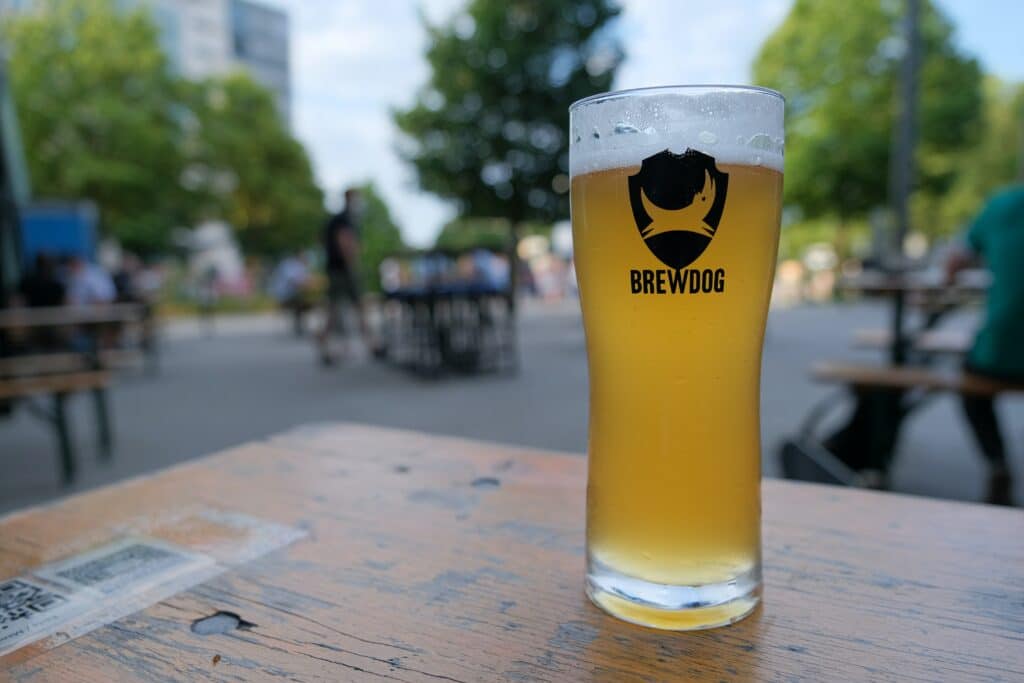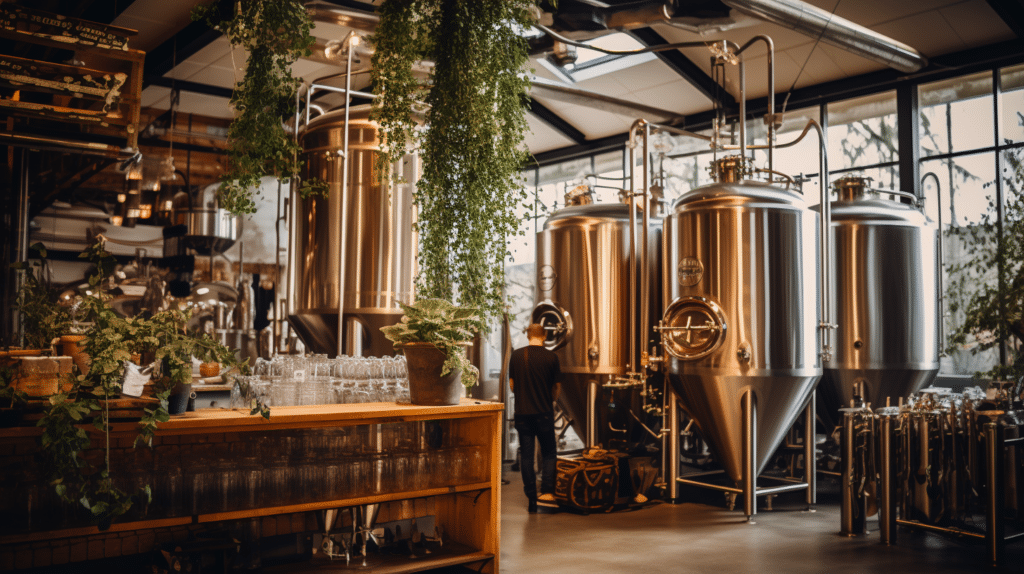Disclaimer: This post may contain affiliate links, from which I may earn a small commission at no extra cost to you. Thank you for supporting Ale Affair.
Brewing is not just about crafting the perfect pint but about making an eco-friendly mark. Today’s brewers actively champion beer sustainability by ingeniously integrating green practices throughout their production. From harnessing renewable energy sources to reducing water wastage, they are redefining the industry’s ethos. This green transition isn’t merely trend-following; it’s a genuine commitment to our planet’s future. As we dive deeper, we’ll unearth the compelling nuances of this sustainability revolution and its bearing on the beer world.
The Rising Tide of Beer Sustainability
Throughout history, the evolution of brewing has mirrored societal needs and tastes, but one of the most exciting shifts in our era is the fervent embrace of beer sustainability. But why now? And why so passionately?
It starts with a global awakening. As the clock ticks and the planet warms, both brewers and beer lovers are recognising that what’s good for the Earth is invariably good for the pint. Sustainable beer isn’t just about responsible sourcing or recycling waste – it’s a holistic approach, encompassing everything from the farms where hops grow to the glasses into which beers are poured.
Imagine walking into a brewery powered entirely by solar energy, where water conservation methods are the norm, and every byproduct finds a new life instead of heading to a landfill. Such places aren’t just figments of imagination but sprouting up across Britain and beyond, a testament to the drive for beer sustainability.
Moreover, it’s no longer a niche for boutique brewers. Some of the world’s biggest beer brands are investing millions in green technologies, championing sustainability efforts, and engaging their communities in eco-conscious dialogues.
But what’s genuinely exciting is that this isn’t just an industry-driven push. Consumers, empowered with information, are demanding greener brews. They’re actively seeking out and supporting those breweries that put the planet at the heart of their operations.
With every sip of a sustainably brewed beer, you’re not just tasting the rich flavours but also the dedication and effort that went into making it planet-friendly. As we continue this eco exploration, anticipate insights about the trailblazers of this movement and how beer sustainability could toast to the future.
Spotlight on the Most Sustainable Beer
A title as coveted as “The World’s Most Sustainable Beer” is bound to pique the curiosity of many, from avid beer enthusiasts to the eco-conscious consumer. So, what defines this prestigious accolade, and who reigns supreme?
While there’s no one-size-fits-all answer, there are key benchmarks to consider. First and foremost is the sourcing of ingredients. A genuinely sustainable beer prioritises organic farming practices, ensuring hops, barley, and other essentials are cultivated with minimal environmental impact.
Next, consider the energy utilised during production. Champions of sustainable beer often turn to renewable energy, with solar-powered breweries leading the pack. They are a beacon of innovation, producing quality brews while significantly reducing their carbon footprint.
But the journey of a sustainable beer doesn’t end with production. Packaging plays a pivotal role. The frontrunners in sustainability opt for biodegradable or endlessly recyclable packaging.
Lastly, spent grains are given a second life in leading breweries, perhaps as animal feed or even as ingredients in artisanal foods.

Pioneering Breweries in Sustainable Practices
- BrewDog (Scotland) – Not only for their craft beer but also for their dedication to being carbon negative.
- Sierra Nevada Brewing Co. (USA) – Known for their solar-powered breweries and water conservation techniques.
- Stone Brewing (USA) – Champions water reclamation and employs an extensive recycling programme.
- New Belgium Brewing (USA) – A strong focus on renewable energy and waste diversion.
- Carlsberg Group (Denmark) – Their Together Towards ZERO initiative aims for a greener future in brewing.
- The Alchemist (USA) – Prioritises local sourcing and supports community-based environmental initiatives.
The quest for the title of the most sustainable beer isn’t just about accolades. It’s about a collective commitment to our planet. For a slightly less positive exploration, let’s learn how global climate shifts influence our favourite brews.
A Thirsty Earth: How Climate Change Impacts Our Pints
Unfortunately, beer is not immune to the ripple effects of climate change across various sectors. The ties between beer and the environment run deep, making the beloved beverage a prime candidate for climate change’s vast repercussions.
Firstly, let’s consider water – beer’s primary component. Water scarcity is a looming concern, with erratic rainfall patterns and prolonged droughts becoming commonplace. Breweries require vast amounts of this precious resource, and as availability becomes inconsistent, the process becomes challenging.
Then, there’s barley, the backbone of many beers. As unpredictable weather events become the norm, barley harvests suffer. A shift in seasonal temperatures, unexpected frosts, or excessive rain can jeopardise the growth and quality of this crucial grain. A decline in barley yields directly influences production costs, potentially driving up beer prices for consumers.
Hops, which give many beers their unique aromas and flavours, are equally at risk. These plants are susceptible to their environment. A slight change in temperature or water availability can alter their growth, potentially modifying the flavour profile of the beers they season. Additionally, heat can reduce the bitterness compounds in hops, necessitating more hops per brew and raising costs. Fluctuating weather can also introduce diseases and pests, potentially altering not only the beer flavour but price. That is why many breweries are pioneering sustainable agricultural practices, exploring drought-resistant barley varieties, and implementing innovative water-saving technologies.
While the beer industry indeed feels the weight of climate change, it’s also at the forefront of adaptation and innovation. While enjoying our pints, let’s take a moment to consider the delicate relationship between nature and the brewing process. This reminds us of the importance of caring for our planet to preserve the longstanding tradition of beer-making. Onwards to a sustainable brewing future!
Summary
Our exploration of beer and the changing climate underscores the crucial role of sustainability in brewing’s future. From water scarcity to altered barley harvests, climate change casts a shadow on our pints. Yet, the industry’s innovative spirit stands tall, championing sustainable practices and pioneering change. As we lift our glasses, it’s not just to the rich brew inside but to a future where beer and the environment thrive harmoniously. Every sip reminds us that our favourite beverage’s fate and planet are inextricably linked. Cheers to a sustainable future!

